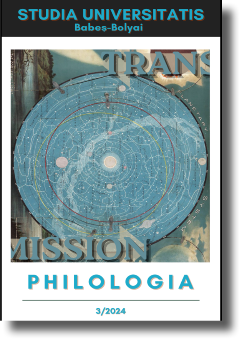TRANSMISSION, IMITATION AND THE QUESTION OF EARLY AMERICAN LITERARY NATIONALISM
TRANSMISSION, IMITATION AND THE QUESTION OF EARLY AMERICAN LITERARY NATIONALISM
Author(s): Dragoş IvanaSubject(s): American Literature
Published by: Studia Universitatis Babes-Bolyai
Keywords: the early American Republic; transatlantic exchanges; English imitations; generic instability; common property; the early American novel.
Summary/Abstract: Transmission, Imitation and the Question of Early American Literary Nationalism. This article seeks to revalue early American literature and concurrently to clarify to what extent one can talk about American literary nationalism during the formative post-revolutionary years. Although many anthologies of American literature as well as critical studies devoted to American literary historiography have underlined the national unity of American literature as a whole, they have consistently ignored this particular period in which the transmission and imitation of English models and their alteration or transformation by American booksellers and publishers, corroborated with generic instability and the absence of central publishing hubs, fail to attest to a homogenous—and, implicitly, wholly national—development of literature. In doing so, special attention will be paid to the early American novel as a site for probing the ideals of the early Republic, for appraising its historical accomplishments, and, ultimately, for lambasting its democratic failure. At the same time, despite the misleading name of “novel” attributed to various literary genres, and its hybrid form, the early American novel was instrumental in reflecting transnational concerns and cultural exchanges that were highly suggestive of the unstable cultural identity of America at the time.
Journal: Studia Universitatis Babes-Bolyai - Philologia
- Issue Year: 69/2024
- Issue No: 3
- Page Range: 65-78
- Page Count: 14
- Language: English

